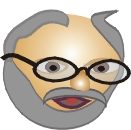 A good deal of the reason for The AVE has been my concern about administrative abuse of faculty rights.
A good deal of the reason for The AVE has been my concern about administrative abuse of faculty rights.
As one example, The AVE has provided extensive coverage of the Aprikyan affair. Now we will likely never find out whether Andrew Aprikyan ever did anything wrong. Instead a team of lawyers, hired by the UW, and by Attny General McKenna, has managed to get Andrew’s case dismissed on a technicality … Andrew’s lawyers filed their case against President Emmert rather than against the UW itself. Money (tax payers’ money) has triumphed over a legal process that might have determined Andrew’s innocence.
So much for the “presumption of innocence.”
Since the story is well told elsewhere on The AVE, here are the brief facts of the matter. A faculty member who has a personal interest in Andrew’s claims to credit for some work, filed an anonymous charge against Andrew. This charge was never examined as required by the Faculty Code or as recommended by NIH rules. Instead, a UW attorney set up an administrative investigation whose findings were not very clear. The administration concluded that Andrew was guilty and went on to fire him.
This investigation was found to be in violation of due process by a legally established very impressive faculty council, with experts in faculty code and science. The UW’s response, signed by then President Emmert, presented no reasons for its own decisions but attacked the faculty council as “arbitrary and capricious.”
Put another way, the UW has chosen to ignore its own rules for determining guilt and has instead hired a very expensive attorney (using your tax money) , and outspent Dr. Aprikyan . He now either has to accept the UWs decision or spend more of his own money to return this case to District Court with a new filing at a huge cost to himself.
The Aprikyan affair is not an isolated case. Another faculty member is currently being subjected to the same procedure initiated by another UW attorney. That attorney is acting like a Soviet appointed investigator who also serves as a judge. This attorney again claims the authority to act without requiring a decision by the faculty of the school, by the chair of the Dept., by the Provost, or by the Secretary of the Faculty. The charges, which I believe are false, could result in criminal action and the investigation itself will produce a major disruption of the suspect’s career. There are, moreover, no stated limits, nor even an explanation of the colleague’s rights under the fifth amendment.
So much for Miranda.
This is happening to a faculty member. what happens when a student or fellow? Is this untrammeled right to investigate limited to the UW?
Some idea may come from email I just received from The Scientist:
Duke University postdoc Shamarendra Sanyal was found guilty of research misconduct by the Office of Research Integrity (ORI), according to the Federal Register notice published earlier this month (October 7), by falsifying data on a grant application for the National Heart, Lung, and Blood Institute. The research—on how mouse airway cells behaved during inflammation—was not submitted for publication. Sanyal agreed to disciplinary actions, which include the supervision of any research supported by the US Public Health Service.
While I have not read the grant, there are signs here of abuse of the fellow’s rights. First. the only grant Dr. Sanyal is likely to have been allowed to submit would be some form of training grant fellowship. Such grants should be overseen by Duke’s faculty and must be under NIH rules. Why is Dr. Sanyal’s name being publicized with no mention of her mentor(s)? The appearance of a coverup is itself worrisome.
Nicola Solomon University of Michigan Medical School was charged with neglecting to sequence genetic clones of homeobox genes in the mouse that would confirm their identity and integrity, and for not discussing this omission with the corresponding author. In addition, when the corresponding author included text describing that the clones had been fully sequenced, Solomon neglected to correct the error. Last week (October 12), Solomon settled her case with no admission of guilt, but has agreed to two years of supervision.
The wording here suggests that the worst thing that Dr. Solomon may have committed is being sloppy. Since the report does not mention that the paper was withdrawn, it is likely that this was minor error with no effect on the conclusions of the paper. Such errors in science are very common. I can not even tell whether the error was hers. The agreement suggests that nothing wrong was done by Dr. Solomon, rather that intimidated by investigators , she is being forced into an action that will denigrate herself.
Again, I am astonished that the “corresponding author,” presumably her mentor, is unmentioned.